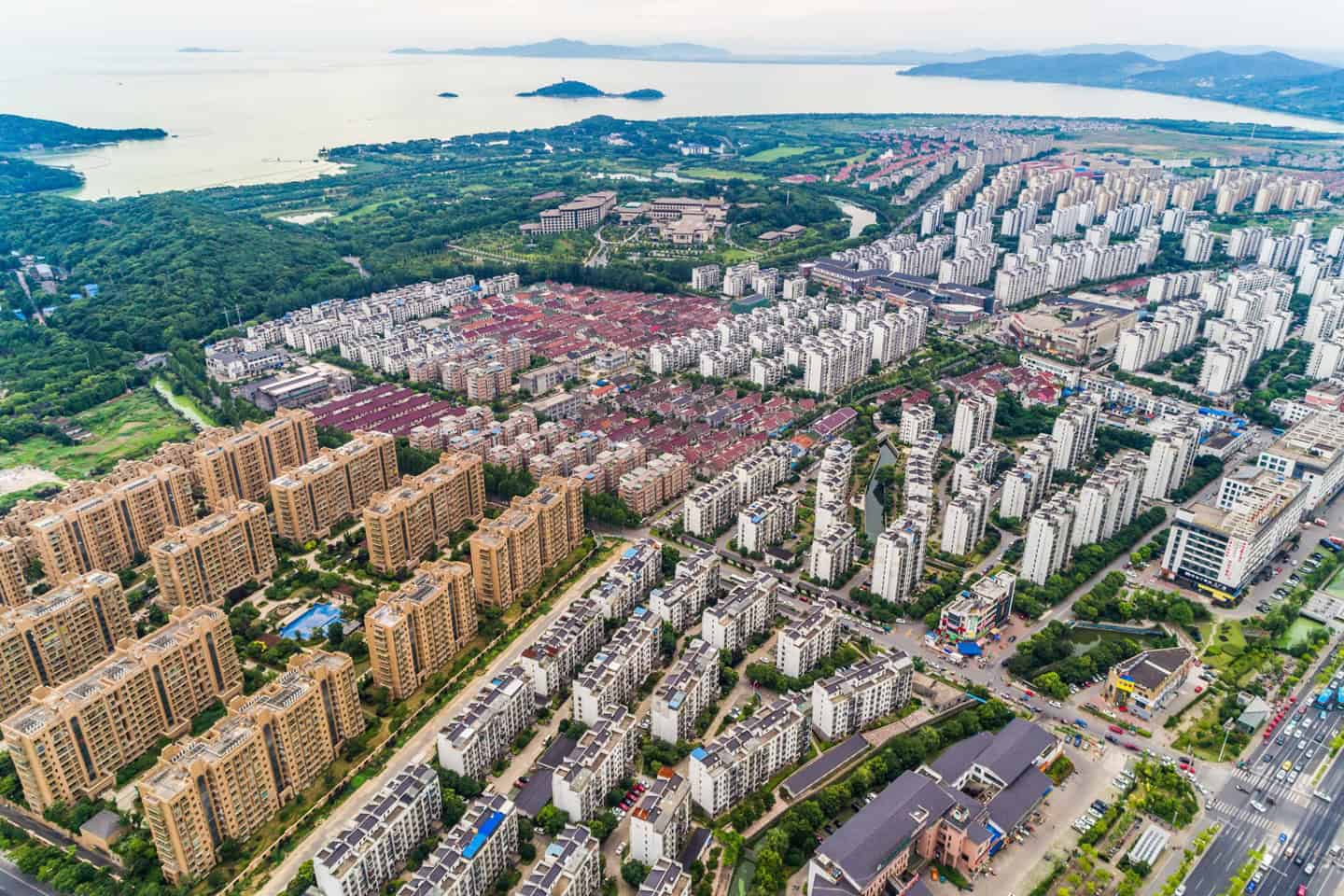Real estate refers to the property or land and all the permanent structures and natural resources that are attached to it. This covers tangible assets and improvements on the land, such as houses, warehouses, factories, roads, bridges, and fences. These permanent structures set real estate apart from other types of property, like personal belongings or movable items.
Importance of real estate in the economy
- Real estate development has contributed to economic growth by creating jobs in construction, real estate services, and related industries.
- Real estate generates substantial tax revenue for governments through property taxes, which fund essential public services such as education, infrastructure, and public safety
- It is also known for its stability. Unlike other investment vehicles, such as stocks or bonds, real estate tends to appreciate over time
- Through rental properties, individuals and businesses can collect regular rental payments, creating a consistent stream of income.
- Real estate development shapes the growth and structure of cities and towns
Types of Real Estate
1. Residential Real Estate
Residential real estate includes properties used as homes for individuals or families. It covers various types, such as single-family homes, townhouses, condominiums, and multifamily homes, each with unique features and benefits.
- Single-family homes are standalone properties that are typically owned by one family. They offer privacy, ample outdoor space, and potential for customization.
- Condominiums, or condos, are individual units within larger buildings or communities. They often include shared amenities such as pools and fitness centers, making them a popular choice for people looking for a low-maintenance lifestyle.
- Townhouses are similar to single-family homes but are attached to other properties. They often have shared walls and common areas, offering a sense of community.
- Multifamily homes, such as duplexes or apartment buildings, contain multiple units that can be rented out to generate income.
2. Commercial Real Estate
Commercial real estate includes properties used for business purposes. These properties support different business services and economic activities. Unlike homes, commercial real estate makes money through property value increases and renting space to businesses. Most commercial buildings are made for businesses, like office buildings, shopping centers, strip malls, restaurants, hotels, and other places where companies sell products or services.
3. Industrial Real Estate
Industrial real estate includes properties used for making, storing, and moving things. These properties are for manufacturing, production, storage, and distribution. Examples include warehouses, factories, distribution centers, research and development buildings, and assembly plants. Industrial buildings are made just for business, but they’re different from offices or stores.
4. Retail Real Estate
Retail real estate refers to properties used for selling goods and services directly to consumers. These properties typically include storefronts, shopping malls, strip malls, retail parks, and standalone stores. Retail real estate plays a vital role in the economy by providing spaces for retailers to conduct business and serving as destinations for consumers to shop for a wide range of products and service
5. Mixed-Use Real Estate
Mixed-use real estate refers to properties or developments that combine multiple types of land use within a single project or building. These developments typically include a mix of residential, commercial, retail, and sometimes industrial spaces, all integrated into one cohesive community or complex.
Mixed-use real estate aims to create vibrant, walkable neighborhoods where people can live, work, shop, and socialize, reducing the need for long commutes and fostering a sense of community these developments often feature amenities such as parks, restaurants, entertainment venues, and transportation hubs to enhance the overall quality of life for residents and visitors.
6. Vacant land
These are unimproved or undeveloped lands. While they may lack structures, they hold potential for future development, making them attractive to investors and developers. Vacant land is often purchased with the intention of building homes, offices, retail stores, factories, farms, or recreational facilities for residential, commercial, industrial, or agricultural purposes.
Reason to Invest in Real Estate
With the country’s affordable property prices, robust rental market, stable political environment, and growing economy, there are many compelling reasons to consider investing in Ghanaian real estate.
- The country’s booming economy
In a booming economy, property values tend to appreciate over time. Investors who buy real estate during periods of economic growth can benefit from capital appreciation as the value of their properties increases.
- Rising population
A major reason to invest in real estate in Ghana is the country’s rapidly increasing population.
The population surge will require the development of new infrastructure, such as roads, power supplies, and public transportation systems. These infrastructural improvements will not only enhance residents’ quality of life but also boost the value of nearby properties
Read more on some reasons to invest in real estate in Ghana (link)
Challenges in Real Estate
Investing in real estate comes with various challenges that investors and developers must know. Here are some common challenges :
1. Interest rate fluctuations
Interest rates play a pivotal role in Real Estate financing. When interest rates rise, the cost of borrowing money increases. This makes mortgages and loans more expensive for homebuyers and real estate investors. When the interest payments become higher, it can reduce overall affordability and deter potential buyers from purchasing properties.
To mitigate the challenges posed by interest rate fluctuations, real estate investors and developers can:
- Monitor economic indicators and interest rate trends to anticipate changes.
- Explore creative financing options or negotiate favorable loan terms to minimize the impact of rising rates.
2. Maintenance cost
Real estate properties need regular maintenance and repairs to stay in good condition. Sometimes unexpected problems arise, such as structural damage, plumbing issues, or roof repairs, resulting in significant expenses. These unplanned costs can impact the overall profitability of a property and require property owners to set aside funds to cover such eventualities.
3. Competition
The real estate market can be very competitive, with many investors and developers trying to buy the best properties. This high demand can lead to increased prices, making it more expensive to purchase properties. As prices go up, the potential profit margins for investors and developers can decrease, making it harder to achieve high returns on investment. This competitive environment requires careful strategy and planning to succeed.
4. Regulatory changes
Real estate is affected by rules and zoning laws that can change over time. If property owners don’t follow new rules, they can face fines, and legal actions, or be forced to make changes to their properties. These regulations can also impact the real estate market. For instance, stricter zoning or environmental laws can reduce the amount of land available for development, which can increase property prices.
The future of real estate
The real estate world is changing a lot. Technology, how people live, and the economy are all pushing this change. In the future, buying, selling, and living in homes will be very different. We’ll see more smart homes, where everything can be controlled with a phone and buildings that are better for the environment. Also, more people will be working from home, and there will be a big focus on making homes cheaper. So, real estate is going to be exciting and have lots of different things happening.
Read the full article on the future of real estate here (link)



